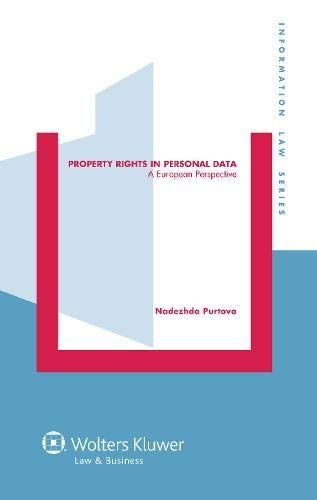
Property Rights in Personal Data A European Perspective
Personal data, at least in the European legal lexicon, is not a conventional object of property rights. Yet, regardless of the actual legal circumstances, lively markets in personal data have become a reality. The so-called information industry routinely collects and deals in databases containing personal details of people as both citizens and consumers, and appears to regard this data as its property. Moreover, individuals also treat data pertaining to them as their own, and habitually disclose personal data in exchange for money, goods, services, and online social interaction. This important new book defends the ground-breaking proposal to propertise personal data. Propertisation arguably improves the position of a data subject to exercise control over his/her personal data by creating more effective tools of accountability and monitoring. It can also be used, the author shows, to enforce existing data protection rights as expressed in the EC Data Protection Directive (1995), Council of Europe Convention for the Protection of Human Rights and Fundamental Freedoms (1945) and Convention No. 108 (1981). This book inquires to what extent the propertisation of personal data is legally possible in Europe, and examines what benefits and limitations would ensue. It provides: a systematic understanding of the developments and concerns with regard to personal data; a detailed examination of the main arguments for and against the concept of property in personal data; and a European perspective on property rights in personal data. The result is a book full of original insights that breaks new ground in addressing the problems of personal data in the European law of data protection and informational privacy."